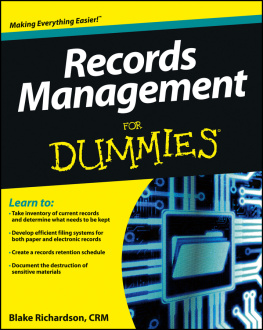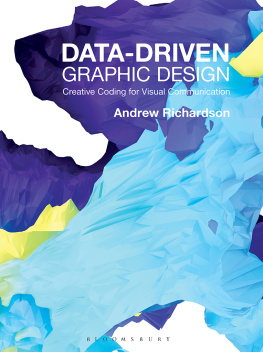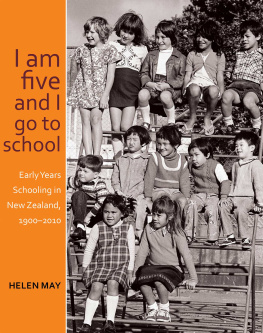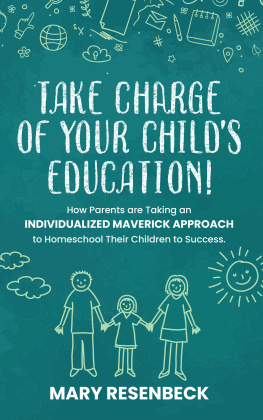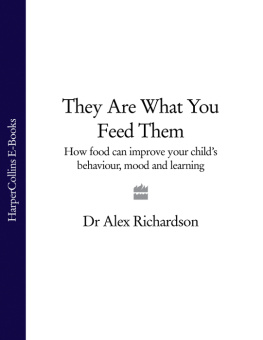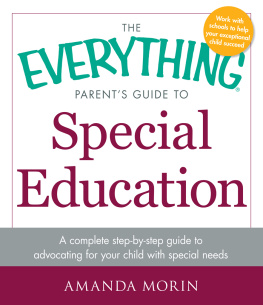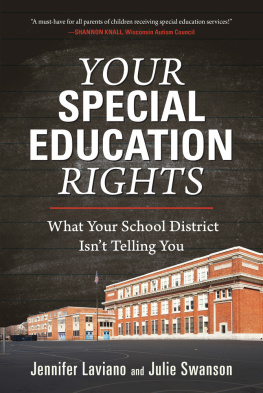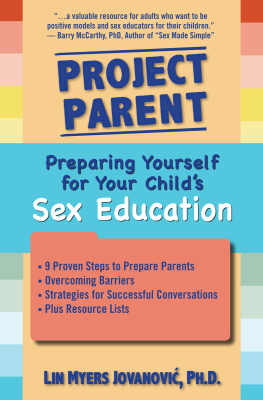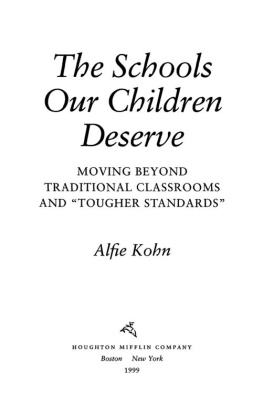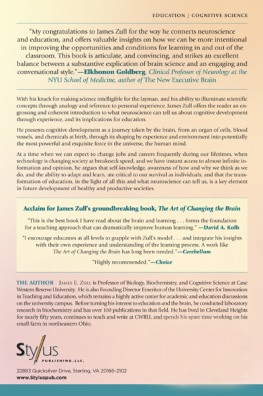Richardson - Why school: how education must change when learning and information are everywhere
Here you can read online Richardson - Why school: how education must change when learning and information are everywhere full text of the book (entire story) in english for free. Download pdf and epub, get meaning, cover and reviews about this ebook. City: New York;NY;United States, year: 2012, publisher: TED Conferences, genre: Home and family. Description of the work, (preface) as well as reviews are available. Best literature library LitArk.com created for fans of good reading and offers a wide selection of genres:
Romance novel
Science fiction
Adventure
Detective
Science
History
Home and family
Prose
Art
Politics
Computer
Non-fiction
Religion
Business
Children
Humor
Choose a favorite category and find really read worthwhile books. Enjoy immersion in the world of imagination, feel the emotions of the characters or learn something new for yourself, make an fascinating discovery.

- Book:Why school: how education must change when learning and information are everywhere
- Author:
- Publisher:TED Conferences
- Genre:
- Year:2012
- City:New York;NY;United States
- Rating:3 / 5
- Favourites:Add to favourites
- Your mark:
- 60
- 1
- 2
- 3
- 4
- 5
Why school: how education must change when learning and information are everywhere: summary, description and annotation
We offer to read an annotation, description, summary or preface (depends on what the author of the book "Why school: how education must change when learning and information are everywhere" wrote himself). If you haven't found the necessary information about the book — write in the comments, we will try to find it.
Why school: how education must change when learning and information are everywhere — read online for free the complete book (whole text) full work
Below is the text of the book, divided by pages. System saving the place of the last page read, allows you to conveniently read the book "Why school: how education must change when learning and information are everywhere" online for free, without having to search again every time where you left off. Put a bookmark, and you can go to the page where you finished reading at any time.
Font size:
Interval:
Bookmark:
To Tess and Tucker, from whom Ivelearned more than I could ever have imagined.
Its raining: one of those cold, grayFebruary rains about five degrees north of snow that casts a dank,chilly-to-the-bone pall over everything. Worse, its a Saturday,which means a full day of kids stuck inside. My 13-year-old son,Tucker, is bouncing a basketball in the kitchen, pounding itbetween his legs, behind his back, into chairs and plants when heloses his handle. Hes feeling caged in, and I can sense that hismom is about to have a not-so-great parenting moment.
Hey, Tuck, I call from the den. He dribbles through the house,narrating his approach in his best Marv Albert voice Heshoots.... YES! and falls on the couch next to me.
Listen, I say, I know youre bored, but youve had too muchXbox this week, and since I just changed the password on yourFacebook account
His eyes open almost as wide as his mouth. You WHAT?
Kidding! I say. How about this, though? Ive been talking tosome of my online friends about Minecraft
Minecraft! he yelps, jumping up from the couch. Jakeand Billy play Minecraft. Youre gonna let me playMinecraft?
Yes, I am. This surprises Tucker because despite their moms andmy daily immersion in technology, weve been trying to mete out thetech time to him and his older sister, Tess, in small doses. Wejust got the Xbox a few months ago, and the Internet connectiongoes down by design at 9 oclock every night. All Tuckers friendsare playing Call of Duty. As the only one whos not, hesbeen feeling a bit ostracized. Were just not ready forshoot-em-up. (Call us old-fashioned.) But the Lego-likeMinecraft environment seems different: morelearning-centered, constructivist, social, and, most important,approved by some important nodes in my own online network, likeMelanie McBride in Toronto, Chad Sansing in Virginia, Jo Kayoutside Sydney, Australia, and quite a few others closer to our NewJersey home.
Tucker discards the basketball, fires up the iMac, and creates aMinecraft account. I put in my credit card info, and a fewminutes later, hes off and running. Its 10 a.m.
So, what do you know about Minecraft, Tuck?
Nothing, really. Only that you have your own space, where youbuild stuff and dig for stuff, and that there are creepers that eatyou at night. He starts poking around Minecraft.net, and by thetime I head out to grab a cup of coffee with his mom, Wendy, heswell into the How to Survive the First Night video.
An hour and a half later, when we get back, the creepers haveshown up.
Dad! Its nighttime, and I couldnt figure out how to getenough coal to light up my house, and now the monsters and spidersare eating me, Tucker reports, as if I actually have a clue whathes talking about. Now I have to wait until daylight to get aliveagain. But hes not really waiting. Hes navigated to a pageof YouTube videos by someone named Paul Soares Jr., who has createdstep-by-step video tutorials of how to play the game. Tuck isalready on the third installment, and I notice that hes beenjotting down notes on scratch paper. No doubt hell be ready forthe Minecraft morning.
By 1 p.m., the virtual sun is out, and strange sounds areemanating from the den. From the kitchen I hear what I think is asheep bleat, then a cow moan, and then I hear Tucker. But, wait...wait... WAIT! Hes half screaming. How do I pick up the pick?For a split second, I think hes on tech support. But, when I duckmy head in, I see hes used my laptop to put together a four-panedooVoo video call with Jake and Billy and a girl who I dont think Iknow but is wearing a Yankees cap, so she gets a pass. What am Itrying to find? Tucker asks into the screen.
I obviously dont exist.
The rain is still beating down a couple hours later, when Tuckercalls us into the den. Both Wendy and I think its time to pull theplug, rain notwithstanding. Im not fully prepared, however, forwhat I see. Heres my house, he says, and he gives us a tour.Its on top of a mountain and has bedrooms and furniture and stovesand all sorts of other stuff. And thats Jakes house, way overthere, he indicates. Across a peaceful, blue bay, I see a castleon a hill that looks, even for the Minecraft interface,downright beautiful.
Whoa, Tuck, I say. Thats kinda awesome. Wendy actually nodsin agreement. And then the question just blurts out of my mouth, asif I didnt already know the answer, Howd you learn to do allthat stuff?
If youre reading this, odds are prettygood you went to school. In fact, just the word itself probablyconjures up all sorts of images, stories, and emotions. You mayhave loved or hated it. You may have excelled academically orthought the whole thing was a waste of time (or both, for thatmatter). You probably had teachers youll never forget, others youwish you could forget, bad cafeteria lunches, playground fights,intense crushes, overweight backpacks, amazing moments ofinspiration and learning, and bad moments you thought would neverend. Though our individual narratives differ, there is a comfortingconsistency in the collective story we tell. For about 180 days ofthe year, we go to school. We learn the important stuff weresupposed to learn. If all goes well, we pass the tests. And withany luck, we graduate to the real world outside those cinder-blockwalls and go on to grand successes in our lives. Our story abouteducation has gone basically unrevised for 150 years.
Times up.
More and more, Tucker and his connected friends are crafting anew narrative around learning. (Millions of connected adults areits co-authors.) Its a story that challenges the fundamentalpremise of this thing we call school. In this new story, reallearning happens anytime, anywhere, with anyone we like not justwith a teacher and some same-age peers, in a classroom, fromSeptember to June. More important, it happens around the things welearners choose to learn, not what someone else tells us tolearn.
This new story requires us to ask the difficult yet crucialquestion: why school? Im not suggesting we consider scrappingschool altogether. Im suggesting that this moment requires us tothink deeply about why we need school. Or to ask, morespecifically, whats the value of school now that opportunities forlearning without it are exploding all around us? There is animportant, compelling answer to that question. It is mostdefinitely not the same one weve been giving for the last 150years.
Heres the deal. The world has changed and continues changing rapidly and radically when it comes to the ways in which we canlearn, and what knowledge, skills, dispositions, and forms ofliteracy our children will need to flourish in their futures. Plainand simple, the Web and the technologies we use to access it drivethose changes. And those changes are, in a word, profound. Sooneror later, that upheaval will force us to tackle the why school?question head-on.
Every one of us has a stake in the answer. Its not only parentsof school-age kids, or the teachers in their classrooms, who needto grapple with this. Schools play an important role in ourcommunities, and not just because they help determine propertyvalues. They are part of the fabric of who we are. Moreover, theyremain the places where every one of our kids can go (in theory, atleast) to get equal access to an education. Between that and theancillary child care functions they provide, schools as placeswhere children come together to learn will not be going awayanytime soon.
But what happens inside of schools is going to change, now thatthe Web connects us the way it does. It has to.
Right now, we are at the precipice of two very different visionsof what modern education should look like two very differentanswers to the why school question. One bodes well for ourchildren, and one bodes not so well, as Ill explain.
Font size:
Interval:
Bookmark:
Similar books «Why school: how education must change when learning and information are everywhere»
Look at similar books to Why school: how education must change when learning and information are everywhere. We have selected literature similar in name and meaning in the hope of providing readers with more options to find new, interesting, not yet read works.
Discussion, reviews of the book Why school: how education must change when learning and information are everywhere and just readers' own opinions. Leave your comments, write what you think about the work, its meaning or the main characters. Specify what exactly you liked and what you didn't like, and why you think so.

